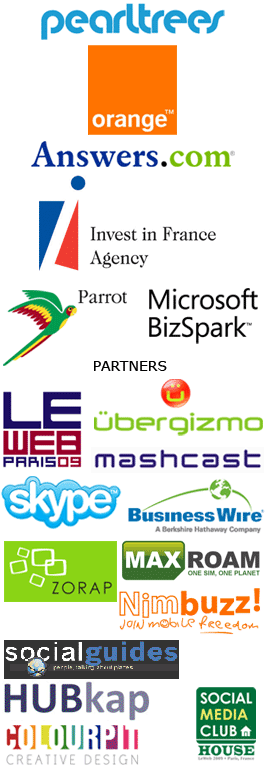Web 2.0 Expo Announces Launch Pad Companies
by Renee Blodgett on April 22, 2010 at 8:44 am
Launch Pad is a program designed to spotlight new products or technologies to the Web 2.0 market and will take place during Web 2.0 Expo San Francisco at the Moscone West Convention Center, from May 3-7, 2010.
The five finalists were selected from over 80 submissions based on their innovation and value to market. Each finalist will present for five minutes in front of Web 2.0 Expo’s audience and judging panel of industry experts who will provide real-time feedback. Web 2.0 Expo’s panel of judges includes: Marshall Kirkpatrick of ReadWriteWeb, Dave McClure of 500 Hats and Ellen Pack of Elance. Brady Forrest, Web 2.0 Expo Co-Chair, will emcee the program.
The following five companies will present at Web 2.0 Expo’s Launch Pad on Wednesday, May 5, 2019 at 1:15 pm:
* AskYourTargetMarket.com: AskYourTargetMarket is a self-service target market research platform that includes a built-in consumer panel to answer surveys on demand
* Pearltrees: Pearltrees is a social curation tool that gives users a social way to organize, discover and share stuff they like on the Web
* Rhomobile: Rhomobile provides mobility solutions for the enterprise and creates cross-platform native applications for all major smartphones
* Strings: Strings is a social tracking and filtering platform to enable consumers to share and discover experiences that are meaningful and relevant to them
* Stupeflix: the Stupeflix Play platform transforms pages static content into engaging videos, on-the-fly
Additionally, Startup Weekend is an event where individuals come together to build a product and sometimes a company in two short days. A winner is chosen at the end of the event and this year’s Launch Pad will include that winner on stage along with the five selected Launch Pad finalists.
A People’s Choice Winner will be announced on-site at Web 2.0 Expo San Francisco. Audience members will be asked to vote for their top choice based on the demos. Votes will be tabulated in real-time and projected live on screen. All presenters are Launch Pad winners and benefit from the instantaneous feedback provided by the judging panel and the audience.


